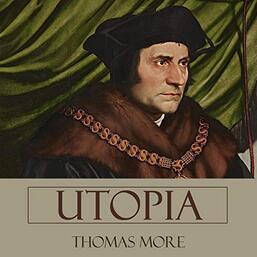Utopia
 Someone asked me about the origin of the word utopia. Here it is!
Someone asked me about the origin of the word utopia. Here it is!The word was coined in 1516 by Sir Thomas More as the title of his book about an imaginary island enjoying utmost perfection in its legal, social, and political systems.
The Latin word utopia, created by More, means ‘nowhere’ or ‘no place’, perhaps implying that such perfect places do not exist anywhere except in the imagination. He differentiated the word utopia from eutopia (a good place). Today, however, the word utopia commonly means a good or perfect place rather than ‘no place’—eutopia became utopia.
More created the word utopia from Greek ou (not) + topos (place; e.g., topography); i.e., no place. Since the 1960s, linguists have puzzled over these origins as Greek ou derives from the Proto-Indo-European (PIE) root aiw (vital force, life, long life, eternity). Rather than ‘no place’, a modern translation of utopia might be ‘a place of long life’ but without any connotations of perfection.
Linguists also caution against confusing the Greek prefix ou (not) with the Greek prefix eu (good) which forms words such as eulogy (good words), euthanasia (good death), euphemism (good speech), and others.
In any case, since the 1610s, the word utopia has come to mean any perfect place. In contrast, the word dystopia was coined in 1844 meaning an imagined world or society in which people lead wretched, dehumanized, and fearful lives. The word dystopia came into common use in the 1950s to describe some of the science fiction of the time; e.g., George Orwell’s 1984.
Sir Thomas More was an English lawyer, judge, social philosopher, author, statesman, and a noted Renaissance humanist. He served Henry VIII as Lord High Chancellor of England. He was executed for treason because of his opposition to issues surrounding Henry VIII’s marriage to Anne Boleyn. The 1966 movie of his life, A Man For All Seasons, won the Academy Award for Best Picture of the Year. I still remember the last scene in the movie: just as the executioner’s ax swung up and came down, the movie screen went dark and silent.
Reference: Online Etymological Dictionary, https://www.etymonline.com/
https://en.wikipedia.org/wiki/Utopia
Published on September 06, 2022 21:31
No comments have been added yet.



